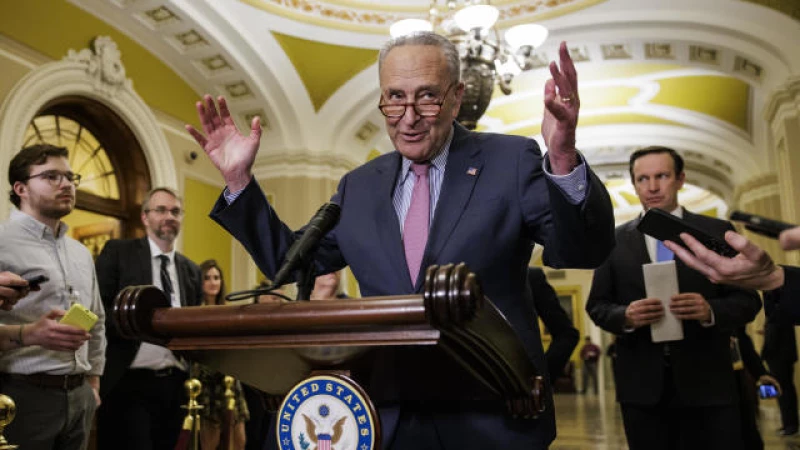Washington — The Senate is set to act on a stopgap spending measure Tuesday night to stave off another government shutdown ahead of a fast-approaching deadline at the end of the week.
The Senate is scheduled to take its first procedural vote on a bill that will serve as the vehicle for the stopgap measure, known as a continuing resolution. It would extend government funding deadlines to March 1 and March 8 to give both chambers time to approve longer-term funding.
"The focus of this week will be to pass this extension as quickly as we can," Senate Majority Leader Chuck Schumer, a New York Democrat, said Tuesday.
Schumer said the vote will put the Senate on track to pass the continuing resolution before Friday.
"If both sides continue to work in good faith, I'm hopeful that we can wrap up work on the CR no later than Thursday," he said. "The key to finishing our work this week will be bipartisan cooperation in both chambers. You can't pass these bills without support from Republicans and Democrats in both the House and the Senate."
The Countdown to Shutdown
In the absence of a continuing resolution, certain federal agencies will experience a partial shutdown when their funding runs out on Friday. Funding for other departments is set to expire on February 2nd under the last stopgap measure.
Last week, Schumer and House Speaker Mike Johnson, a Louisiana Republican, reached an agreement on the overall spending levels for annual appropriations bills. This agreement largely followed the one made last year by President Biden and then-House Speaker Kevin McCarthy, a California Republican.
However, the Senate and House appropriations committees were left with very little time to draft and pass the bills, putting pressure on Congress to rely on another short-term funding extension to avoid a shutdown.
If passed, this will be the third short-term spending deal that Congress has approved since September.
Johnson may encounter obstacles in getting the bill through the House, where staunch conservatives have insisted on spending levels significantly lower than those agreed upon by congressional leaders, while also opposing short-term funding measures. House Republicans are also dealing with a number of absences, which further diminishes their already slim majority.
Both Johnson and McCarthy had to rely on Democrats to pass last year's continuing resolutions in the House, which ultimately led to McCarthy's speakership coming to an end. The opposition from hardliners to the latest agreement suggests that Johnson will once again need to rely on Democrats to secure the passage of the bill and keep the government funded.
Johnson Agrees to Short-Term Extension to Avoid Shutdown
Senator Johnson had previously stated that he would not support another short-term extension, but he has now changed his position as the first shutdown deadline in January approached.
In a statement on Sunday, Johnson explained that the decision was necessary to allow Congress to continue passing the 12 appropriations bills individually, which had been a demand from hardline conservatives.
"Because the completion deadlines are upon us, a short continuing resolution is required to complete what House Republicans are working hard to achieve: an end to governance by omnibus, meaningful policy wins, and better stewardship of American tax dollars," Johnson said.







